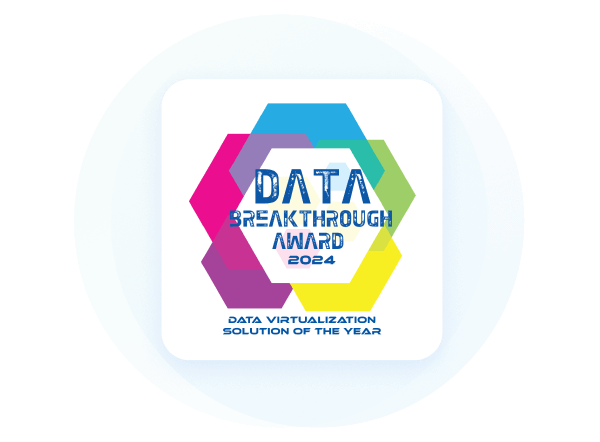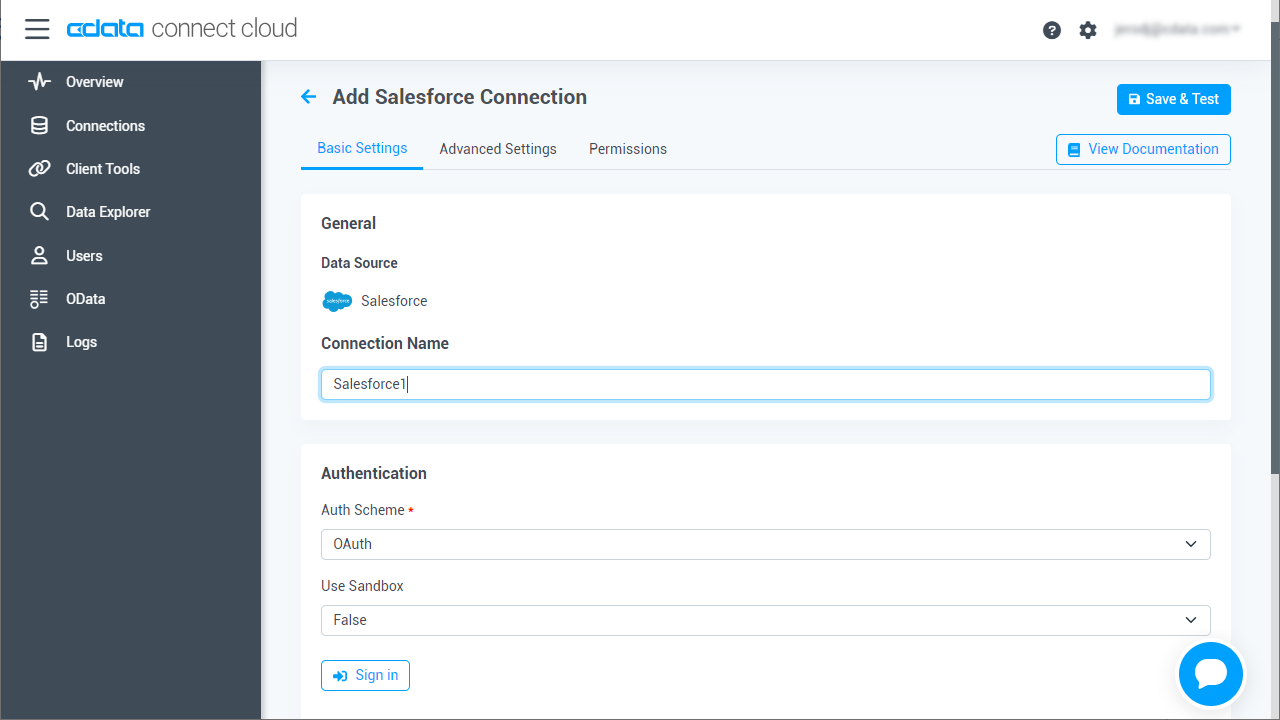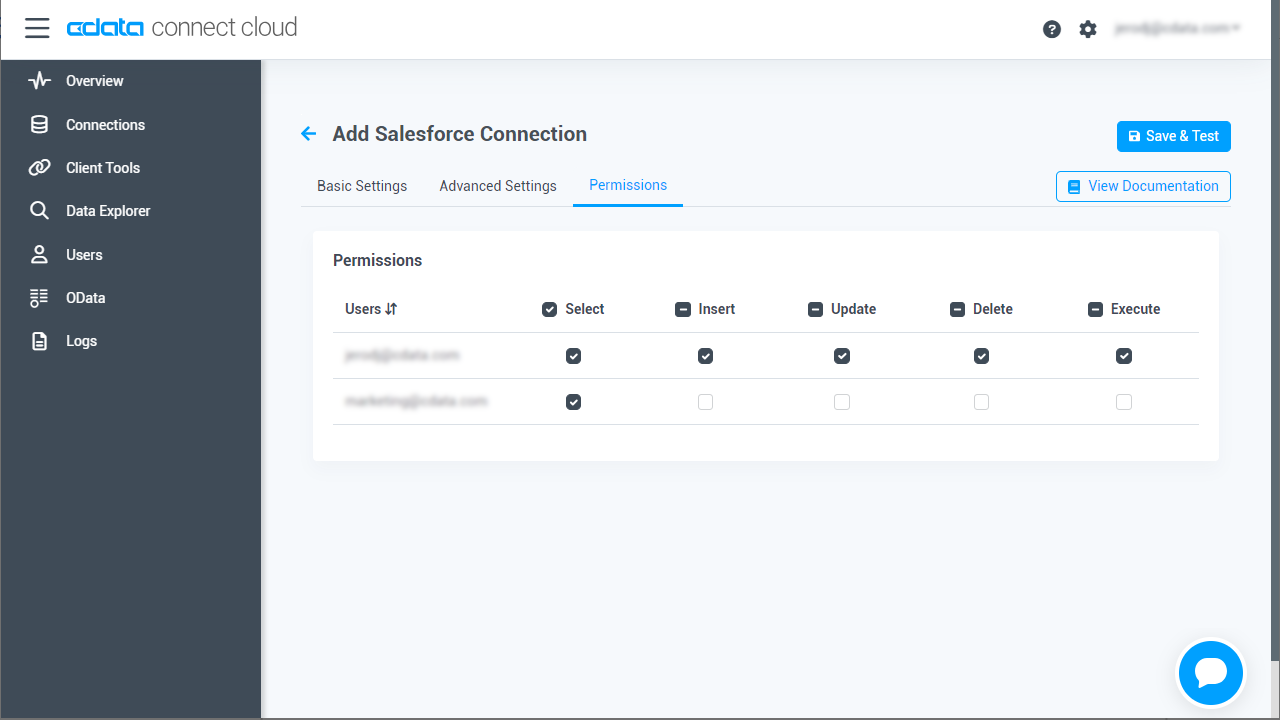Discover how a bimodal integration strategy can address the major data management challenges facing your organization today.
Get the Report →Import AlloyDB Data Using Azure Data Factory
Use CData Connect Cloud to connect to AlloyDB Data from Azure Data Factory and import live AlloyDB data.
Microsoft Azure Data Factory (ADF)) is a completely managed, serverless data integration service. When combined with CData Connect Cloud, ADF enables immediate cloud-to-cloud access to AlloyDB data within data flows. This article outlines the process of connecting to AlloyDB through Connect Cloud and accessing AlloyDB data within ADF.
CData Connect Cloud offers a cloud-to-cloud interface tailored for AlloyDB, granting you the ability to access live data from AlloyDB data within Azure Data Factory without the need for data replication to a natively supported database. Equipped with optimized data processing capabilities by default, CData Connect Cloud seamlessly channels all supported SQL operations, including filters and JOINs, directly to AlloyDB. This harnesses server-side processing to expedite the retrieval of the desired AlloyDB data.
Configure AlloyDB Connectivity for ADF
Connectivity to AlloyDB from Azure Data Factory is made possible through CData Connect Cloud. To work with AlloyDB data from Azure Data Factory, we start by creating and configuring a AlloyDB connection.
CData Connect Cloud uses a straightforward, point-and-click interface to connect to data sources.
- Log into Connect Cloud, click Connections and click Add Connection
- Select "AlloyDB" from the Add Connection panel
-
Enter the necessary authentication properties to connect to AlloyDB.
The following connection properties are usually required in order to connect to AlloyDB.
- Server: The host name or IP of the server hosting the AlloyDB database.
- User: The user which will be used to authenticate with the AlloyDB server.
- Password: The password which will be used to authenticate with the AlloyDB server.
You can also optionally set the following:
- Database: The database to connect to when connecting to the AlloyDB Server. If this is not set, the user's default database will be used.
- Port: The port of the server hosting the AlloyDB database. This property is set to 5432 by default.
Authenticating with Standard Authentication
Standard authentication (using the user/password combination supplied earlier) is the default form of authentication.
No further action is required to leverage Standard Authentication to connect.
Authenticating with pg_hba.conf Auth Schemes
There are additional methods of authentication available which must be enabled in the pg_hba.conf file on the AlloyDB server.
Find instructions about authentication setup on the AlloyDB Server here.
Authenticating with MD5 Authentication
This authentication method must be enabled by setting the auth-method in the pg_hba.conf file to md5.
Authenticating with SASL Authentication
This authentication method must be enabled by setting the auth-method in the pg_hba.conf file to scram-sha-256.
Authenticating with Kerberos
The authentication with Kerberos is initiated by AlloyDB Server when the ∏ is trying to connect to it. You should set up Kerberos on the AlloyDB Server to activate this authentication method. Once you have Kerberos authentication set up on the AlloyDB Server, see the Kerberos section of the help documentation for details on how to authenticate with Kerberos.
![Configuring a connection (Salesforce is shown)]()
- Click Create & Test
-
Navigate to the Permissions tab in the Add AlloyDB Connection page and update the User-based permissions.
![Updating permissions]()
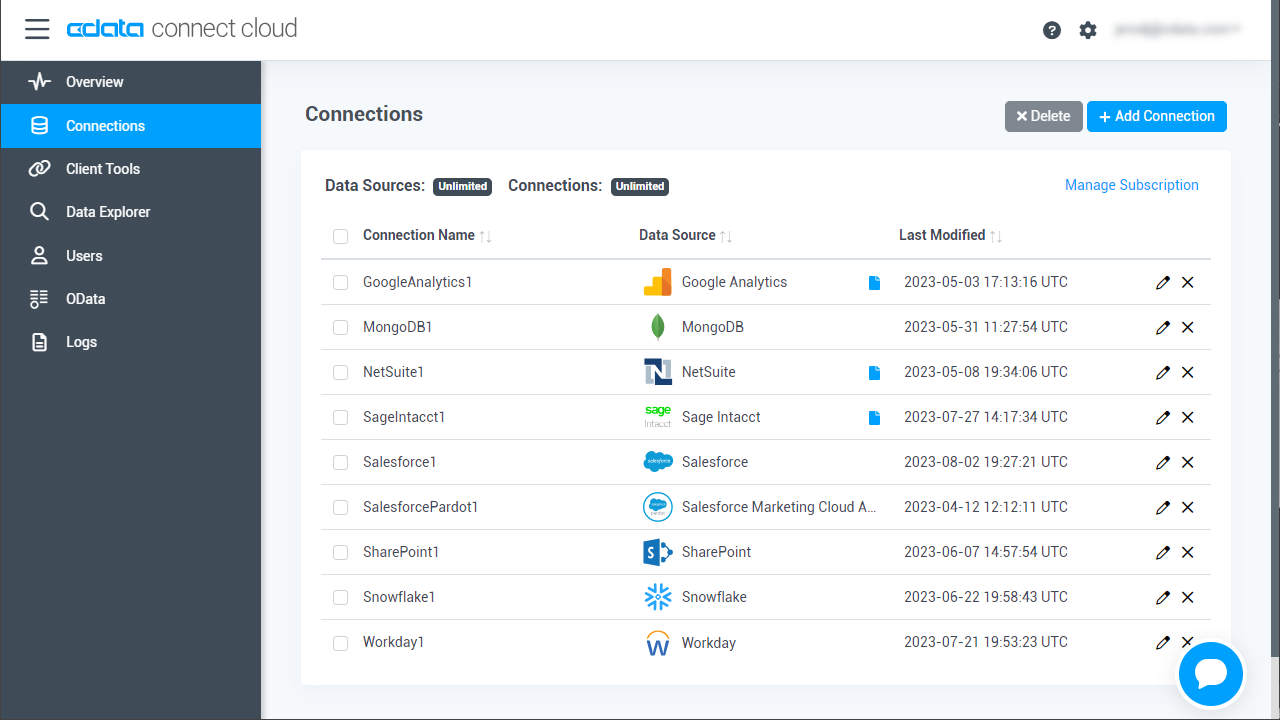
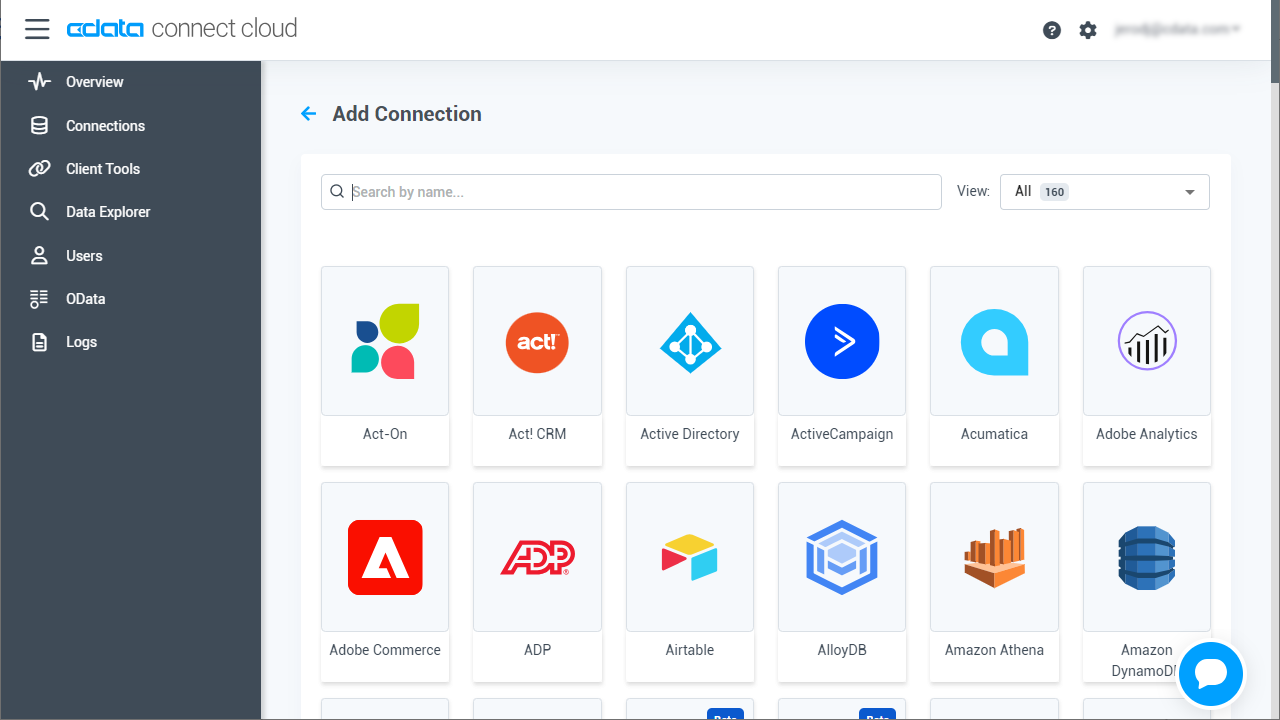
Add a Personal Access Token
If you are connecting from a service, application, platform, or framework that does not support OAuth authentication, you can create a Personal Access Token (PAT) to use for authentication. Best practices would dictate that you create a separate PAT for each service, to maintain granularity of access.
- Click on your username at the top right of the Connect Cloud app and click User Profile.
- On the User Profile page, scroll down to the Personal Access Tokens section and click Create PAT.
- Give your PAT a name and click Create.
- The personal access token is only visible at creation, so be sure to copy it and store it securely for future use.
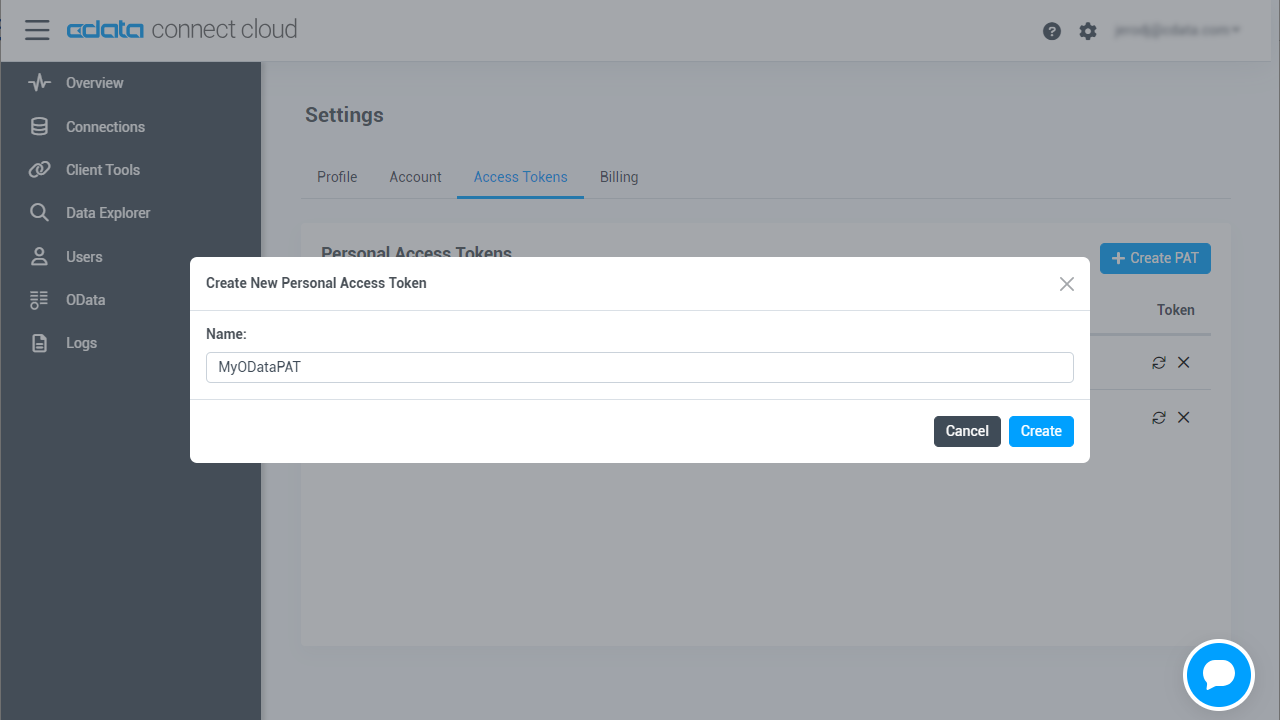
With the connection configured, you are ready to connect to AlloyDB data from Azure Data Factory.
Access Live AlloyDB Data in Azure Data Factory
To establish a connection from Azure Data Factory to the CData Connect Cloud Virtual SQL Server API, follow these steps.
- Login to Azure Data Factory.
- If you have not yet created a Data Factory, Click New -> Dataset.
- In the search bar, enter SQL Server and select it when it appears. On the following screen, enter a name for the server. In the Linked service field, select New.
-
Enter the connection settings.
- Name - enter a name of your choice.
- Server name - enter the Virtual SQL Server endpoint and port separated by a comma: tds.cdata.com,14333
- Database name - enter the Connection Name of the CData Connect Cloud data source you want to connect to (for example, AlloyDB1).
- User Name - enter your CData Connect Cloud username. This is displayed in the top-right corner of the CData Connect Cloud interface. For example, test@cdata.com.
- Password - select Password (not Azure Key Vault) and enter the PAT you generated on the Settings page.
- Click Create.
- In Set properties, set the Name, choose the Linked service we just created, select a Table name from those available, and Import schema from connection/store. Click OK.
- After creating the linked service, the following screen should appear:
- Click preview data to see the imported AlloyDB table.
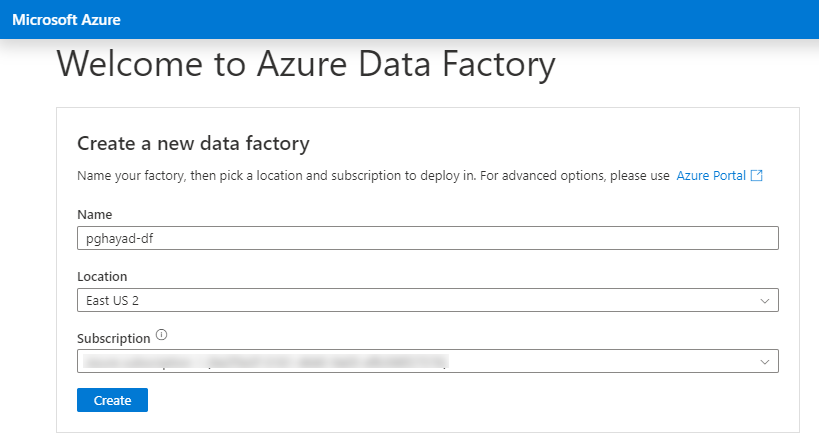
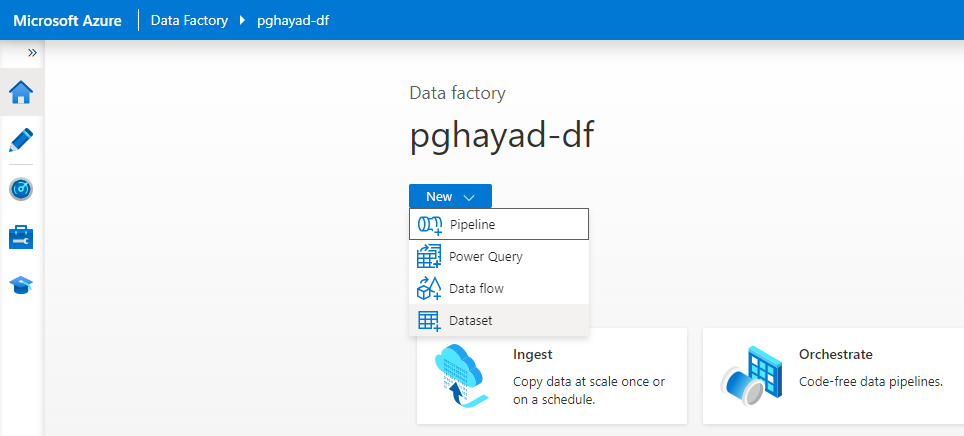
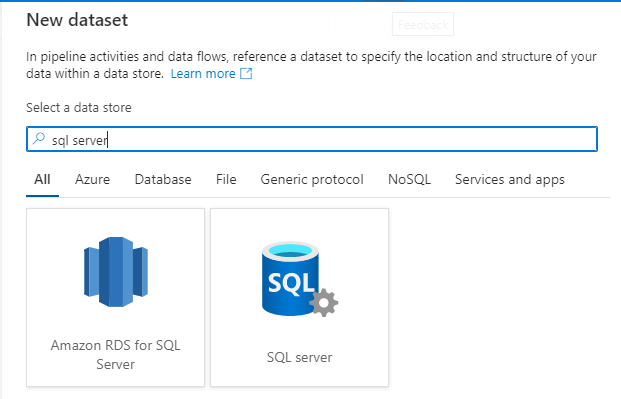
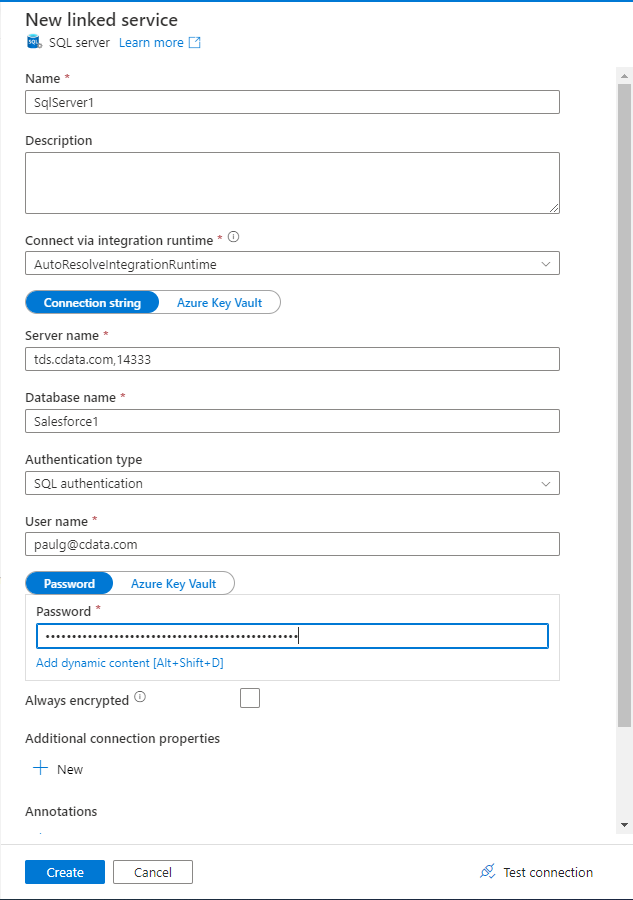
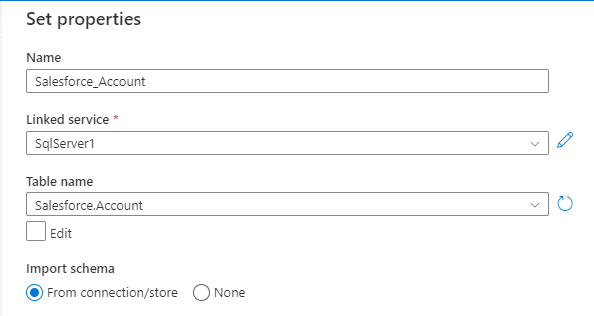
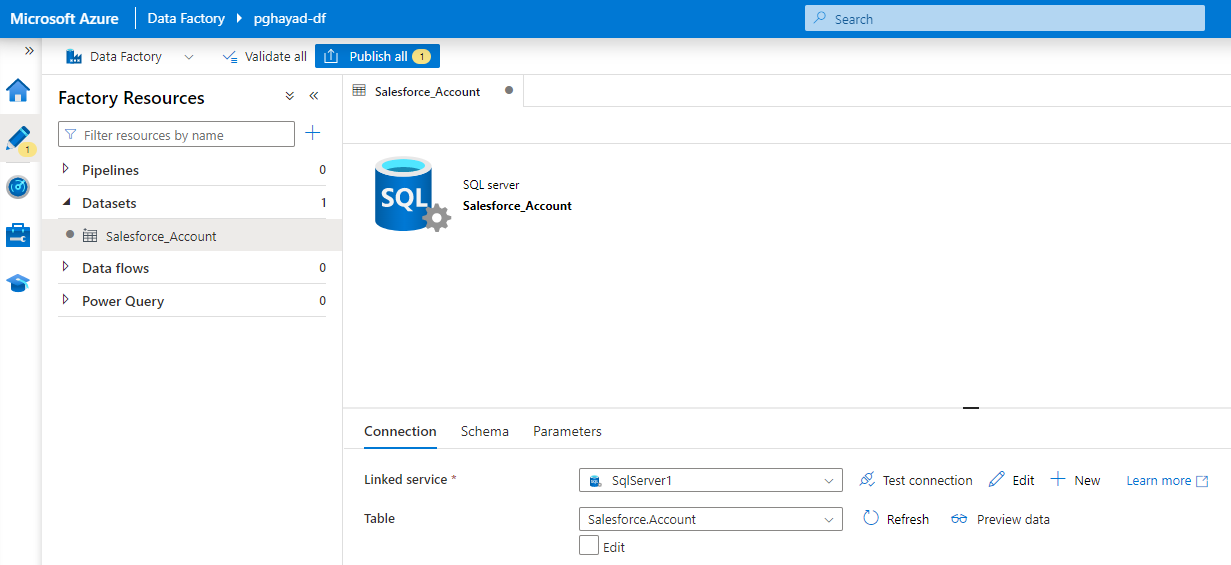
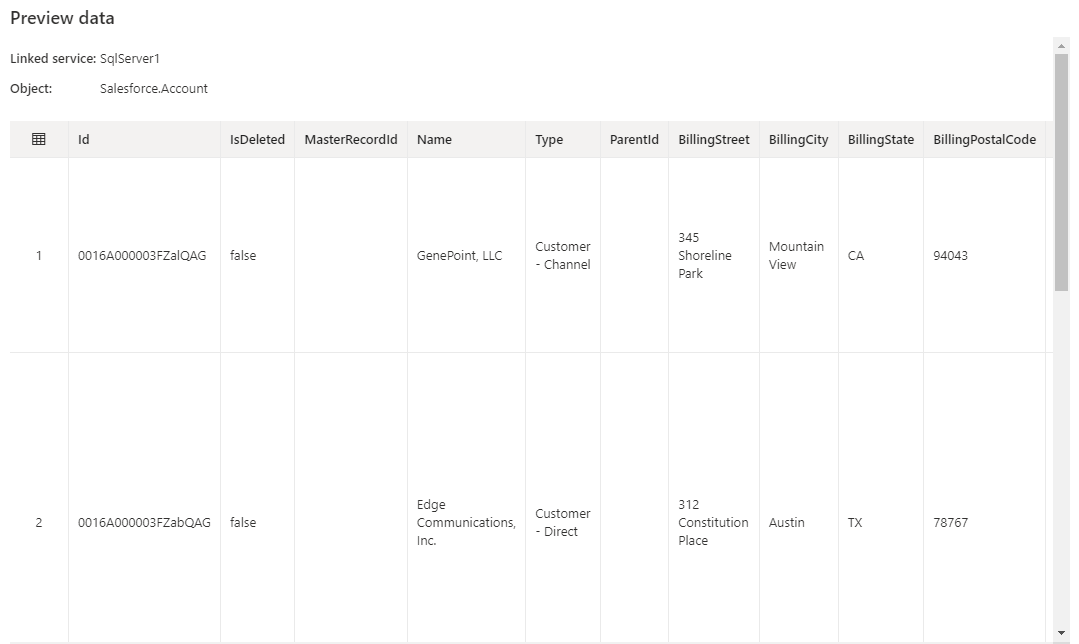 You can now use this dataset when creating data flows in Azure Data Factory.
You can now use this dataset when creating data flows in Azure Data Factory.
Get CData Connect Cloud
To get live data access to 100+ SaaS, Big Data, and NoSQL sources directly from your cloud applications, try CData Connect Cloud today!



